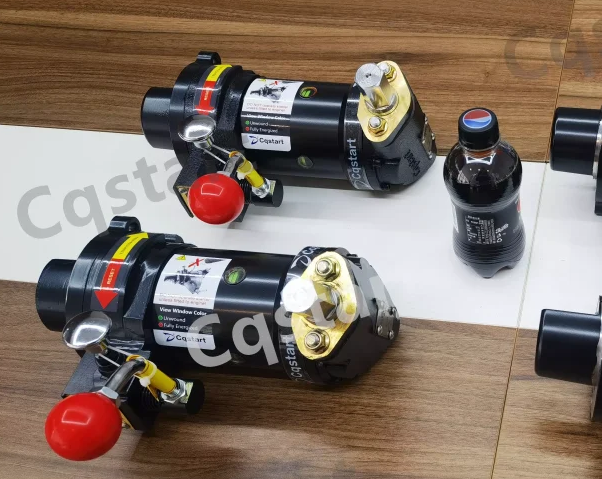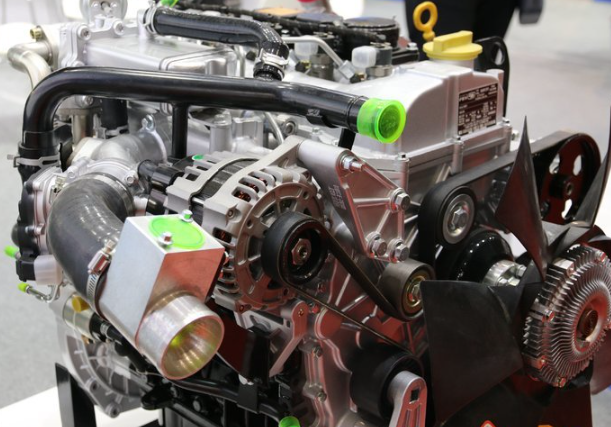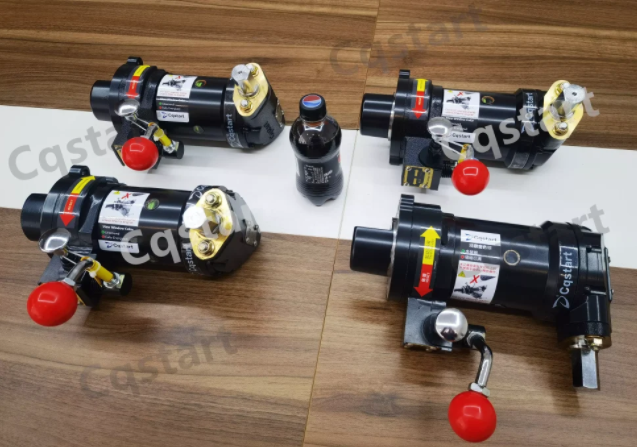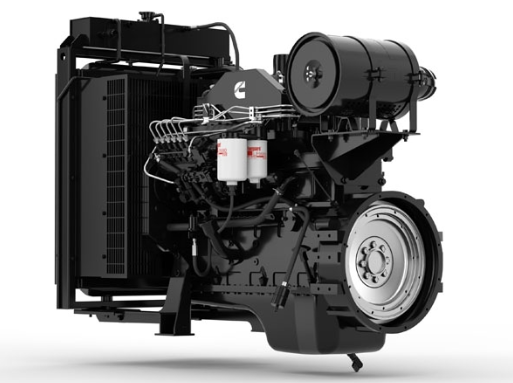On lawns with humming lawnmowers, campsites powered by emergency generators, and lakes where motorboats slice through the water, small engines have long integrated into every aspect of our lives and work. From household gardening tools to outdoor work power equipment, these “small-sized yet high-powered” engines have a core demand: a stable and reliable starter.
While electric starters seem prevalent today, mechanical starters (especially spring starters) still hold an important position in the small engine sector, becoming the top choice for many users. This isn’t about technological conservatism, but that their core features—battery-free operation, extreme environment adaptability, simple maintenance, and low cost—perfectly match small engines’ usage scenarios, offering irreplaceable value in outdoor and portable settings.
Part 1. Key Advantages of Mechanical Starters for Small Engines
Battery – free and convenient
Small engines are often used in scattered scenarios without stable power supplies. Mechanical starters, with their pure mechanical structure, rely on manual energy storage like pull ropes or rotating handles to drive the engine, eliminating the need for batteries or external power sources. This solves the problem of electric starters failing due to dead batteries. For example, in situations such as outdoor camping, after – autumn lawn – mowing, or at remote construction sites, mechanical starters can start the engine with simple operations. Cqstart’s spring starters are especially user – friendly, even for female users.
Compact and lightweight
The design of small engines emphasizes compactness and portability, leaving limited space for starters. Mechanical starters are superior in size and weight due to their simple structure. Take Cqstart’s products as an example, the 7 – series spring starter for engines below 2L weighs only 11kg, and the 5 – series for 1 – 4L engines weighs 16kg. They can be easily installed in narrow spaces without affecting the equipment’s portability, unlike electric starters with larger and heavier components.
Strong environmental adaptability
Small engines often face harsh environments, and mechanical starters have strong adaptability. Cqstart’s spring starters can withstand extreme temperatures from – 40℃ to 80℃ and have “three – proof” capabilities. In contrast, electric starters are affected by temperature, humidity, and dust, with reduced performance and increased failure rates.

Low maintenance cost and long life
Mechanical starters have a simple structure with few moving parts, reducing the failure rate. They only need regular inspection and lubrication according to the manual, with almost no need for part replacement. Cqstart’s spring starters, made of high – quality materials and precision – processed, have a long service life. Electric starters, on the other hand, require regular battery maintenance and are prone to motor and circuit failures, resulting in higher long – term maintenance costs.
Part 2. Common Applications of Mechanical Starters
The core advantages of mechanical starters allow them to excel in various small engine scenarios, being present wherever small engines are used—from households and outdoor operations to professional fields.
Household and Gardening Equipment
Lawn mowers, hedge trimmers, and small tractors are typical users of mechanical starters. These devices are used irregularly and often stored in garages or storage rooms, where batteries tend to age and fail. Battery-free mechanical starters can start smoothly with simple operations even after months of idleness, meeting the “convenient and low-maintenance” needs of household equipment. Cqstart’s Series 7 (for engines below 2L) and Series 5 (for 1-4L engines) spring starters are compact and lightweight, perfectly fitting such small gardening tools. Their labor-saving design enables elderly and female users to start equipment effortlessly, greatly enhancing usability.
Outdoor Emergency Equipment
Emergency generators—vital for camping, household backups, and construction site emergencies—demand highly reliable starting. In power-free scenarios like blackouts or remote areas, electric starters become useless once batteries fail, but mechanical starters, independent of external power, serve as a reliable guarantee. Whether for campground generators or disaster relief emergency power equipment, Cqstart’s mechanical starters respond quickly to ensure uninterrupted operation when it matters most. Their resistance to extreme temperatures, water, and dust lets them adapt to complex outdoor emergency environments.

Small Marine Engines
Motorboats and small fishing boats operate long-term in high-humidity, salt-spray-rich environments, requiring starters with strong corrosion resistance. Cqstart’s spring starters offer triple protection against water, oil, and salt spray; their surface coating and internal structure effectively resist salt spray erosion, preventing rust and malfunction. Additionally, their lightweight design won’t burden the hull, and they operate without power, enabling easy engine startup even in offshore waters—making them ideal for small marine engines.
Outdoor Operation Tools
Small equipment in mines, construction sites, and agricultural operations—such as small drills, agricultural sprayers, and construction site pumps—faces harsh conditions: heavy dust, strong vibrations, and scarce power. Mechanical starters’ durability and power independence perfectly suit these scenarios. Cqstart’s Series 1 (for 4-7.5L engines) and Series 2 (for 7.5-11L engines) spring starters are designed for medium and large small engines, boasting sufficient torque and robust structures to operate stably amid vibrations and dust. Their low-maintenance feature reduces outdoor operational hassle and boosts work efficiency.
Part 3. How to Choose the Right Mechanical Starter?
Selecting the right mechanical starter is vital for a small engine’s optimal performance and avoiding startup issues. Leveraging Cqstart’s product strengths and industry experience, here are four key tips for precise matching:
Prioritize engine displacement compatibility
The starter’s rated displacement must align with the engine’s—mismatch causes insufficient power (failure to start) or excess power (engine damage).
Cqstart’s full range covers needs:
- Series 7 (11kg, <2L) for lawn mowers/motorboats;
- Series 5 (16kg, 1-4L) for generators/sprayers;
- Series 1 (18kg, 4-7.5L) for construction pumps;
- Series 2 (21kg, 7.5-11L) for large outdoor equipment.
Check the engine’s nameplate displacement to choose the right series.

Select features for your usage environment
Opt for waterproof/salt-spray-proof models (all Cqstart products) for humid/coastal areas; -40℃~80℃ resistant options for extreme temperatures; spark-free pre-engagement starters (Cqstart’s spring starters) for hazardous environments; and lightweight designs (e.g., 11kg Series 7) for portable gear.
Choose a reliable brand
Cqstart has nearly 20 years of R&D/production experience, with products trusted in marine, military, and emergency fields. It offers fast delivery (3-5 workdays standard, 2-4 weeks custom), free custom design, one-on-one advice, and timely after-sales support. Avoid unbranded, low-cost products—their inferior materials and craftsmanship risk unstable startup, engine damage, and safety hazards.
Summary
For users, choosing a mechanical starter means a “stable, hassle-free, cost-effective” experience: no dead-battery worries, frequent maintenance, or hidden costs. It ensures on-demand starts for home gardening, camping, outdoor work, or hazardous scenarios.
Prioritize Cqstart mechanical starters when selecting one. They may not be the “most advanced,” but they perfectly fit small engines’ needs, delivering true peace of mind. Pick the right model to eliminate startup troubles and secure stable power output anywhere.


